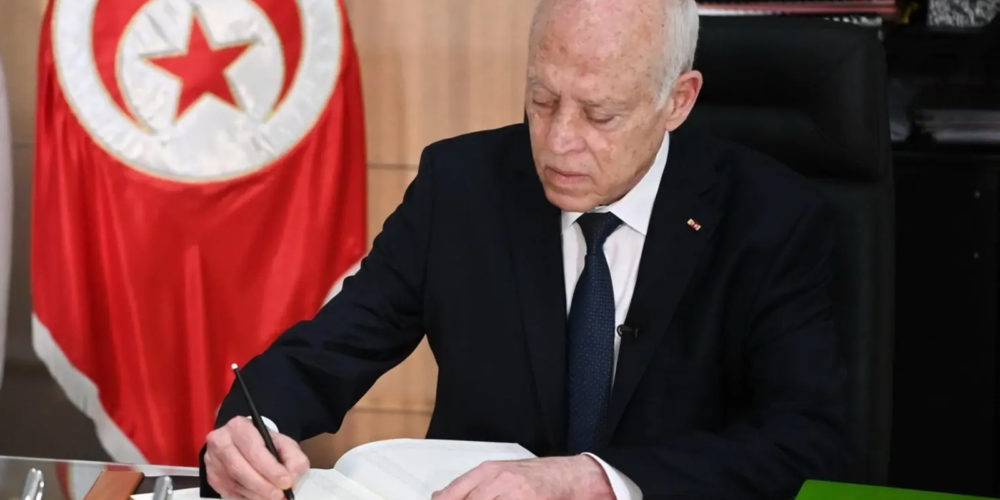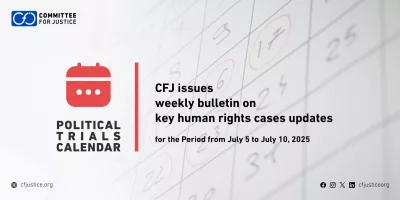On July 23, 2024, the Tunisian presidency announced that President Kais Saied had signed an order granting a “special presidential pardon,” releasing 233 prisoners convicted of crimes related to social media posts. The announcement clarified that the pardon did not extend to those convicted of other crimes beyond their posts, either prosecuted by the public prosecutor or through lawsuits filed by others.
The Tunisian Ministry of Justice further detailed that the president’s orders to drop or reduce sentences applied to 1,727 convicted individuals. The special pardon and conditional release affected 2,956 convicts who met legal criteria, resulting in the release of 1,462 prisoners, while others received sentence reductions.
The Committee for Justice (CFJ) believes that this pardon is “incomplete and lacks significance” due to the exceptions in its wording. It sees it as merely a campaign to improve the image of President Saied and his regime ahead of the upcoming presidential elections in October, without representing a real breakthrough for the crisis of expression and freedoms that has plagued the country since Saied’s exceptional measures on July 25, 2021, which the opposition describes as a coup against the constitution and the legitimate parliament.
According to CFJ, the pardon focused specifically on bloggers among other types of crimes, implicitly acknowledging the exception that criminalizing freedom of expression on social media represents. CFJ believes the pardon should have included all individuals prosecuted for expressing their opinions in Tunisia.
Furthermore, CFJ stated that the world is witnessing the manipulation and circumvention of laws and constitutions by authoritarian regimes to entrench repression and strengthen their control over people. These regimes use propaganda as a tool to improve their image in the international community, claiming to adhere to laws and respect human rights. This, according to CFJ, is an attempt to create a false image of legitimacy and democracy without making any real changes to ensure justice and freedom for their citizens.
CFJ emphasizes that instead of issuing an incomplete pardon, a decision should have been made to suspend the application of Decree 54, which has restricted freedom of expression in the country, or even to abolish it entirely. They condemned the arrest of individuals for posts expressing their opinions on social media, only to later issue a special pardon for them.
Therefore, the Committee for Justice rejects the pardon issued by the Tunisian presidency on July 24, 2024, and demands its amendment to include all detainees of conscience. They also call on the Tunisian authorities to repeal Decree 54, to allow freedom of expression, and to open the civil space in the country before the presidential elections.






